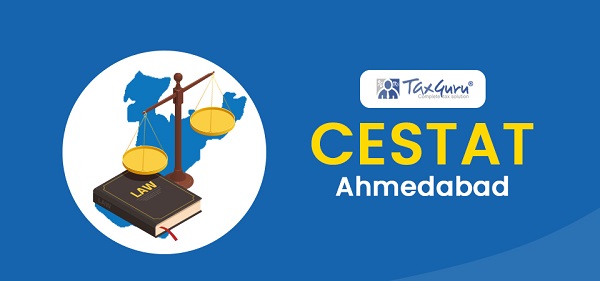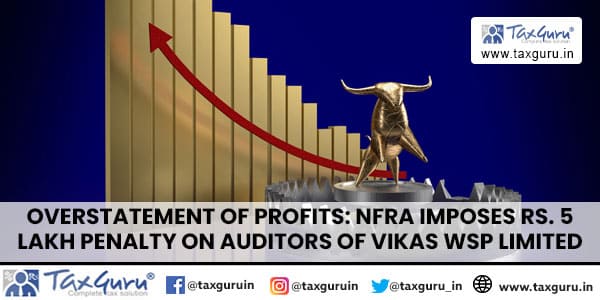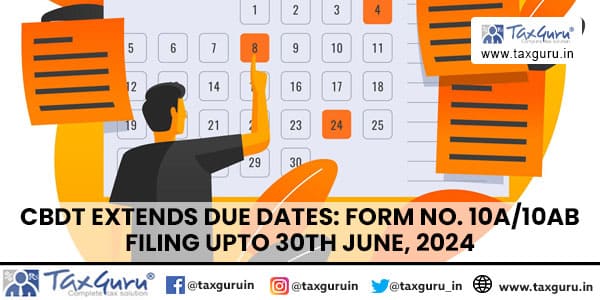Today while we are in lockdown period, let us understand the structure of Limited Liability Partnership firm which is most favoured by the businesses in recent times. Limited Liability Partnerships (LLP) came into effect through The Limited Liability Partnership Act, 2008 (the LLP Act). The Rules made under the LLP Act have been notified on 1st April, 2009. First LLP was registered on 2-4-2009. Sections 55 to 58 pertaining to conversion of a firm or a company to LLP and Rules pertaining to such conversion became operative from 31st May, 2009. After Registration, LLP’s are assigned with unique LLPIN which stands for “LLP Identification Number” which will be needed everywhere in future.
Page Contents
- Salient features of LLP:
- Annual Fillings Applicable for LLP for ROC Compliances:
- Income Tax Provisions Applicable for LLP:
- Appointment of Auditor of LLP:
- Winding up and Dissolution of LLP:
- Loans to Partners and Loans From Partners of LLP:
- Miscellaneous Provisions Applicable to LLP:
- LLP Settlement Scheme 2020:
Salient features of LLP:
♦ Hybrid form of organisation having features of a partnership firm under the Partnership Act, 1932 and a company under the Companies Act, 2013.
♦ Governed by Registrar of Companies (ROC)
♦ Minimum 2 Partners, Maximum no limit of Partners to form the LLP. An individual or body corporate may become a partner in LLP. Even a LLP can be a partner in another LLP.
♦ LLP must have at least two individuals as Designated Partners with DIN numbers. At least one of the Designated Partners must be resident in India. A body corporate partner of the LLP may nominate an individual as a Designated Partner. Only an individual or body corporate may be a partner in a Limited Liability Partnership. An HUF cannot be treated as a body corporate for the purposes of LLP Act, 2008. Therefore, a HUF or its Karta cannot become designated partner in LLP
♦ LLP must maintain proper books of account. The accounts may be on cash basis or accrual basis. Accounts of LLP are required to be audited. However, an LLP whose turnover in any financial year does not exceed ₹40 lakhs or the contribution (capital) does not exceed ₹25 lakhs is exempt from the provisions of audit.
♦ A partnership under the Partnership Act, 1932 may be converted into an LLP. A private company or an unlisted public company may also be converted into an LLP provided there is no ‘security interest’ subsisting on the date of application for
Annual Fillings Applicable for LLP for ROC Compliances:
♦ Post incorporation LLP is required to file Forms 8 & 11 for every Financial Year
♦ Firm 8 is for Statement of Account & Solvency is to be filed within 30 days from the expiry of six months from the closure of Financial Year i.e. for current FY 2019-20 it is 30 October 2020. In Form 8 details of Turnover and Balance Sheet need to be given. Also in Form 8, Disclosure under Micro, Small and Medium Enterprises (MSME) Development Act, 2006 is a mandatory attachment. Form 8 must be digitally signed by a minimum of two Designated Partners of LLP and if in case the turnover of LLP exceeds Rs. 40 Lakhs or Partners Obligation of Contribution exceed Rs.25 Lakhs then Form 8 must be signed by the Auditor Penalty for late filling is Rs.100 per day till delay.
♦ Form 11 is for Annual Return to be filed by all LLP irrespective of Turnover within 60 Days of Closure of Financial Year i.e. for current FY 2019-20 it is 30 May 2020 but due to this Covid 19 impact for current year it is increased to 30 Sept 2020 vide general circular 11/2020 by Ministry of Corporate Affairs. In Form 11, Details of All partners and their capital contributions made need to be shown here. If partners are holding any position in other companies and LLP’s then those details also need be provided in this form. Details of Capital Structure should match in FORM 8 and FORM 11. Normally FORM 8 need to be signed by a designated partners and if Turnover exceeds Rs.5 Crores and total partner contribution exceeds Rs.50 Lakh Full time practising Company Secretary. Penalty for late filling is Rs.100 per day till delay.
Income Tax Provisions Applicable for LLP:
♦ LLP are taxed at Par like Partnership Firms but there are some provisions which are applicable to Partnership firms but not applicable to LLP’s.
♦ The LLP is Taxed at 30% on its income. In case the total income exceeds INR 1 Crore, LLP is also liable to pay surcharge @12% on the income tax. Education Cess payable at 4% additionally on Income tax and surcharge.
♦ Alternate Minimum Tax (AMT) @18.5% plus education cess is also applicable to LLP only in following cases :
-
- When claimed deduction under section 80H to 80RRB (except section 80P)
- If claimed deduction under section 35AD
- If claimed deduction under section 10AA
If AMT provisions apply to LLP, then, the LLP is required to obtain a report in FORM 29C from the Chartered Accountant.
♦ LLP required to get its books of accounts audited under The Income Tax Act, 1961 by practicing Chartered Accountant if its turnover crosses limit for FY 20 19- 20 under business is Rs. 1 Cr and in case of Professional Services Rs. 50 lac and last date to file Tax Audit Report is 30 September 2020. However those LLP’s who are not liable for Tax Audit, needs to file Income Tax Return on or before 31 July 2020 for FY 2019-20.
♦ For the purposes of taxation, an LLP is treated as a firm and all the provisions applicable to a firm will apply to an LLP. Accordingly, provisions contained in section 40(b) of Income Tax Act relating to remuneration to the working partners and payment of interest to the partners will apply to an LLP.
♦ Limits for Interest and Remunerations paid to partners of LLP’s as per Income Tax Act 1961:
-
- Interest Payable to Partners shall not exceed 12% per annum.
- Remuneration payable to partners shall not exceed the following:
√ On First Rs.3 Lakhs of Book Profit or in case of Loss- Rs.1,50,000/- or 90% of Book Profit , whichever is lower.
√ On the balance of the Book Profit-60 % of Book Profit.
♦ LLP is not eligible for the scheme of presumptive taxation under section 44AD/ADA under the Act.
Appointment of Auditor of LLP:
For the first year, the auditor may be appointed any time before the end of the financial year. Thereafter, the auditor is to be appointed at least 30 days prior to the end of the financial year. The designated partners shall appoint the auditors. If they fail to do so, the partners may appoint the auditors. Provisions have been made regarding filling up of casual vacancy in the office of the auditors, reappointment of the auditors, deemed reappointment of the auditors and removal of the auditors. Unlike company there are no provisions under the LLP Act to intimate Registrar about the appointment of the auditor. An auditor may resign or may express his unwillingness to be reappointed by a notice in writing. In either case, he is required to enclose with the notice a statement of circumstances connected with his ceasing to hold office.
Winding up and Dissolution of LLP:
A LLP may be wound up by Tribunal –
- If the LLP itself decides that LLP be wound up by Tribunal;
- If for period of more than 6 months, the number of partners of LLP is reduced below two (here the word partner should be understood and not designated partner);
- If LLP is unable to pay its debts;
- If LLP has acted against interest of sovereignty and integrity of India, the security of State or Public order;
- If LLP has made a default in filling with the registrar of Statement of Accounts and Solvency or Annual Return for any five consecutive financial years;
- If the Tribunal is of the opinion that it is just and equitable that the LLP should be wound up by any reason.
Loans to Partners and Loans From Partners of LLP:
A Partner may lend money to and transact other business with the LLP and has same rights and obligations with respect to any other person. LLP act does not prohibit granting of loans to partners or persons connected/related to partners.
Miscellaneous Provisions Applicable to LLP:
♦ LLP act is silent on process and periodicity of convening of Meetings of partners.
♦ Regulation 9 of First Schedule to LLP Act prescribes that decisions taken at the meeting of partners should be recorded within 30 days of taking such decision and minutes book to be kept and maintained at registered office of LLP.
LLP Settlement Scheme 2020:
Vide General Circular No. 6/2020, MCA brought LLP Settlement Scheme 2020. Government decided to give one-time relaxation in additional fees to the defaulting LLPs to make good their default by filing pending documents and to serve as a compliant LLP in future. The details of Scheme is as under:
- The Scheme shall come into force on the 16th March, 2020 and shall remain in force up to 13th June, 2020;
- Applicability: – Any “defaulting LLP” is permitted to file belated documents, which were due for filing till 31st October, 2019 in accordance with the provisions of this Scheme;
- Manner of payment of fees and additional fee on filing belated document for seeking immunity under the Scheme – The defaulting LLPs may themselves avail of the scheme for filing documents which have not been filed or registered in time on payment of additional fee Rs 10/ – per day for delay in addition to any fee as is payable for filing of such document or return, provided that such payment of additional fee shall not exceed Rs. 5,000/ – per document.
- Immunity from prosecution in respect of documents filed under the scheme – The defaulting LLPs, which have filed their pending documents till 13th June 2020 and made good the default, shall not be subjected to prosecution by Registrar for such defaults.
- The Scheme shall specifically applies for filling following Forms:
√ Form 3
√ Form 4
√ Form 8
√ Form 11
- On the conclusion of the Scheme, the Registrar shall take necessary action under the LLP Act, 2008 against the LLPs which have not availed this Scheme and are in default in filing of documents as required under the provisions of LLP Act, 2008 in a timely manner.
All the above provisions and write up is for educational purpose only.






















Thank you. Very useful infirmation.
Sir, how remuneration paid to partner is shown in the bank transactions? Is there any rule to follow
Can contribution/ capital of existing partner can be transferred to incoming new partner like company shares? If yes, can money be transferred directly to individual who is selling his capital contribution share or it should be routed through the LLP?
Holistically Explained!!
Gr work Dhiraji nice informative to all llp
Well done…!
Good & useful Information…!